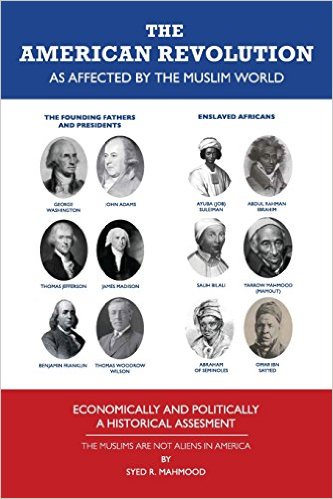Countercurrents – April 21, 2020
Oil prices plunge into negative territory for first time in history
Countercurrents Collective
U.S. oil market has crashed. The price of U.S. oil turned negative for the first time in history. The U.S. oil industry is facing a doomsday scenario. Hundreds of U.S. oil companies could go bankrupt. Many U.S. oil companies took on too much debt during the good times. Some of them will not be able to survive this historic downturn.
West Texas Intermediate oil prices have gone negative in a record low for the U.S. benchmark, as the market continues to crater amid the general economic collapse.
The price of U.S. oil turned negative means oil producers are paying buyers to take the commodity off their hands over fears that storage capacity could run out in May.
Vanishing demand and a glut of supply have combined to heavily impact the U.S. benchmark fuel, with oil prices dropping from $18.27 to close at -$37.63 a barrel on Monday – down over 300 percent from the previous day’s close. It is the first time the crude oil futures contract has ever traded in the negative since the New York Mercantile Exchange started trading it in 1983.
The collapse in oil markets comes amid a generalized economic downturn, with the coronavirus pandemic plunging most of the world’s economies into a downward spiral many believe will be the deepest since the Great Depression of the 1930s.
The U.S. Department of Energy is nevertheless weighing the idea of paying domestic producers to simply leave the oil in the ground so as not to further depress prices.
With May’s futures contracts set to expire on Tuesday, investors are scrambling to unload their positions, eyeing the already-glutted market and concerned about being left with a valueless commodity.
As the futures contracts hovered at record lows, oil tankers are reportedly languishing at sea, unable to find places to store their bounty onshore. Demand for the commodity has dropped an estimated 30 percent worldwide amid the coronavirus crisis.
The coronavirus pandemic has caused oil demand to drop so rapidly that the world is running out of room to store barrels. At the same time, Russia and Saudi Arabia flooded the world with excess supply.
That double black swan has caused oil prices to collapse to levels that make it impossible for U.S. shale oil companies to make money.
U.S. crude for May delivery turned negative on Monday – something that has never happened since NYMEX oil futures began trading in 1983. It was easily the oil market’s worst day on record.
US crude for June delivery is still trading above $20 a barrel — but even that is disastrous.
“$30 is already quite bad, but once you get to $20 or even $10, it’s a complete nightmare,” said Artem Abramov, head of shale research at Rystad Energy.
Bankruptcy
In a $20 oil environment, 533 US oil exploration and production companies will file for bankruptcy by the end of 2021, according to Rystad Energy. At $10, there would be more than 1,100 bankruptcies, Rystad estimates.
Noble Energy, Halliburton, Marathon Oil and Occidental have all lost more than two-thirds of their value. Even Dow member ExxonMobil is down 38%.
Whiting Petroleum became the first domino to fall when the former shale star filed for Chapter 11 protection on April 2. But it certainly will not be the last.
“At $10, almost every US E&P company that has debt will have to file Chapter 11 or consider strategic opportunities,” Abramov said.
The most stunning part of the record low in oil prices is that it comes after Russia and Saudi Arabia agreed to end their epic price war after U.S. President Donald Trump intervened. OPEC+ agreed to cut oil production by a record amount.
Trump said the OPEC+ agreement would save countless jobs and much-needed stability to the oil patch.
“This will save hundreds of thousands of energy jobs in the United States,” Trump tweeted on April 12. “I would like to thank and congratulate President Putin of Russia and King Salman of Saudi Arabia.”
Yet crude has kept crashing, in part because those production cuts do not kick in until May. Demand continues to vanish because jets, cars and factories are sidelined by the coronavirus pandemic.
The hope in the oil industry is that Monday’s negative prices are somewhat of a fluke caused by the rolling over futures contracts.
The key will be how long oil prices stay dirt cheap. A rapid rebound in prices could allow many oil companies to avoid bankruptcy.
Buddy Clark, co-chair of the energy practice at Houston law firm Haynes and Boone, said his firm is “extremely busy” working on potential oil bankruptcies. Haynes and Boone has been forced to pull lawyers from other areas of the firm to work on the oil problem.
“I don’t think I’ve seen anything like it in my lifetime. It’s unprecedented,” said Clark, who started working in the industry in 1982.
Clark thinks that despite the further collapse in prices, there will still be only — “only” — 100 oil bankruptcies in 2020.
“It’s hard to believe that 100 bankruptcies is the optimistic view. That just shows you where we are,” Clark said.
There would probably be more bankruptcies already if it were not for the extreme volatility in oil prices. Clark said companies are having trouble drawing up restructuring plans because they do not know what the price of the commodity will be.
“Ironically, the lower price has slowed down the process,” Clark said. “A number of companies may have teed up filings but they need to go back to the drawing board.”
The dire outlook in the oil industry will make it very difficult for companies attempting to reorganize in Chapter 11 proceedings to get the required financing and support. Debtholders who would normally swap their debt for equity may not want that equity.
That means, unlike the 2014-2016 crash, some oil companies may not survive altogether.
“Chapter 11 requires financial sponsors to back you. You may see more Chapter 7 liquidations,” said Reid Morrison, US energy leader at PwC.
The nightmare scenario could present lucrative buying opportunities for the industry’s biggest players. That is because struggling oil companies, either in bankruptcy or before it, will be forced to sell off prime acreage — at fire sale prices. Exxon and Chevron, the industry’s supermajors, could be tempted to make acquisitions.
“Those with strong balance sheets will be able to take advantage of the situation,” said Morrison.
However, he noted the supermajors will be “cautious about pulling the trigger” in the next six months because they must defend their coveted dividends first.
Negative territory
Demand for oil has all but dried up as lockdowns across the world have kept people inside. As a result, oil firms have resorted to renting tankers to store the surplus supply and that has forced the price of U.S. oil into negative territory.
The severe drop on Monday was driven in part by a technicality of the global oil market. Oil is traded on its future price and May futures contracts are due to expire on Tuesday. Traders were keen to offload those holdings to avoid having to take delivery of the oil and incur storage costs.
June prices for WTI were also down, but trading at above $20 per barrel. Meanwhile, Brent Crude, the benchmark used by Europe and the rest of the world, which is already trading based on June contracts – was also weaker, down 8.9% at less than $26 a barrel.
OGUK, the business lobby for the UK’s offshore oil and gas sector, said the negative price of U.S. oil would affect firms operating in the North Sea.
The oil industry has been struggling with both tumbling demand and in-fighting among producers about reducing output.
Trump has said the government will buy oil for the country’s national reserve.

The Journal of America Team:
Editor in chief:
Abdus Sattar Ghazali
Senior Editor:
Prof. Arthur Scott
Special Correspondent
Maryam Turab
Your donation
is tax deductable.



